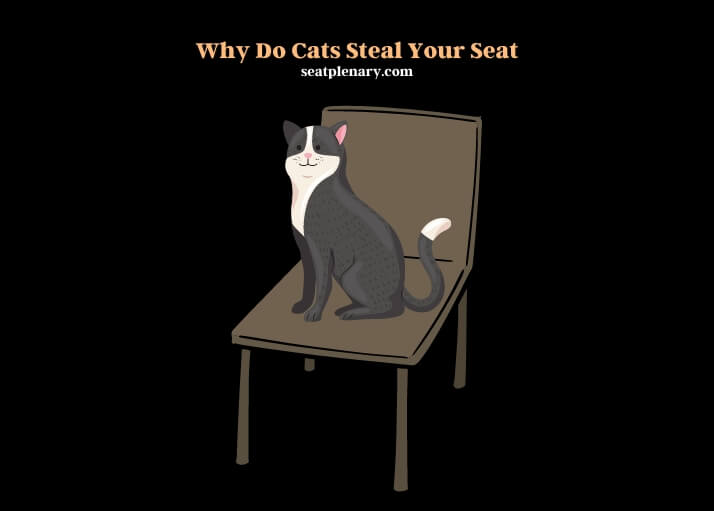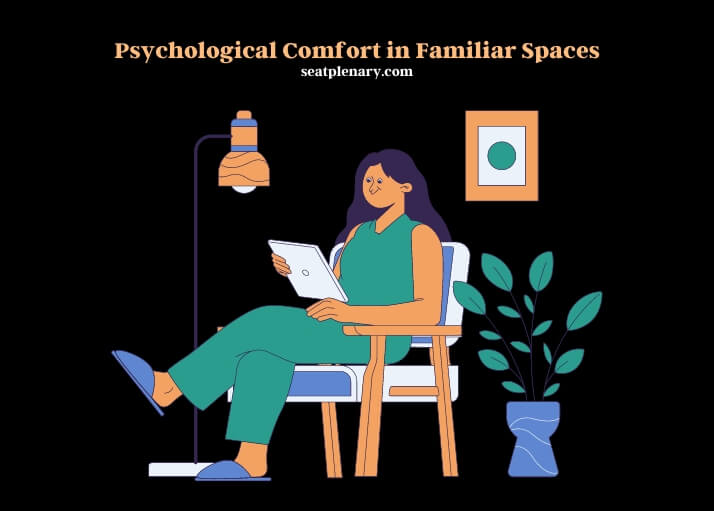Cats steal your seat because it retains your warmth and scent, making it an appealing and comforting spot for them. This behavior is rooted in their instinct for warmth, security, and territory marking.
Cats have a unique way of expressing their affection and asserting their presence within their living spaces. By choosing to occupy the seats we’ve just vacated, they are drawn to the residual warmth we leave behind, which provides them with a sense of comfort and security. This act also allows them to mix their scent with ours, reinforcing their bond with us and marking their territory in a subtle yet effective manner.
The behavior is multifaceted, reflecting their complex emotional and physical needs. On one hand, it showcases their desire for warmth and comfort, a basic instinct shared by many animals. On the other, it highlights the depth of their social bonds with their human companions, seeking to maintain a connection even in our absence.
This habit can serve as a playful gesture, a way for cats to engage with us and seek our attention. Understanding this behavior can deepen the bond between cats and their owners, offering insights into their needs and emotions, and providing us with opportunities to cater to their well-being in our shared environments.

Feline Territory and Comfort Quest
Cats have a fascinating way of interacting with their environment, often seen in their choice of resting places. This behavior is deeply rooted in their instinctual need for territory, comfort, and warmth. Cats are territorial creatures by nature, and by taking over your seat, they are not just seeking a cozy spot but also marking their territory with their scent.
This act of claiming your seat serves multiple purposes: it provides them with a sense of security, the comfort of warmth retained from your body, and satisfies their instinctual behavior.
The quest for comfort is also a significant factor. Cats prefer spots that offer warmth and security, and your seat, recently vacated, provides both. The warmth from your body makes the seat an irresistible spot. This behavior is not just about the physical space but also about the cat asserting its presence and claiming a spot within the social structure of the home.
Human-Cat Bond Dynamics
The interaction between cats and their human companions plays a crucial role in the feline’s behavior, including seat-stealing. Cats develop strong bonds with their owners, and their actions are often attempts to communicate or maintain closeness.
Taking over your seat can be a way for your cat to feel closer to you, enjoying the lingering scent and warmth you leave behind. This behavior can also be seen as attention-seeking, especially if it results in the cat getting petted or spoken to as a result.
Owner absence can trigger this behavior too. Cats may choose to sit in your seat as a way of comforting themselves with your scent when you’re not around. This aspect of cat behavior highlights the complexity of their emotional world and the depth of their bond with their human families.
Environmental Influence on Seating Preference
Cats’ seating choices are significantly influenced by their environment. The layout of the household, the availability of preferred locations, and even temperature variations play into their decision-making. Cats are naturally drawn to warm, sunny spots, but they also seek out places that offer a vantage point or security.
Preferred Seating Locations and Environmental Preferences Among Domestic Cats
| Location Type | Percentage of Preference | Temperature Range |
| Sunny Spots | 60% | Warm |
| Upholstered Chairs | 25% | Moderate |
| Owner’s Seat | 15% | Owner’s Presence |
Psychological Comfort in Familiar Spaces
Cats reclaiming human seats is not just a matter of physical comfort but also psychological well-being. Seats carry the scent of their owners, providing cats with a sense of security and reducing anxiety.
This behavior is a form of scent marking, where cats leave their scent as a way to claim territory and create a familiar and comforting environment. The psychological aspect of this behavior underscores the depth of the cat’s need for security and familiarity in their environment.

Redirecting the Chair-Claiming Habit
The behavior of cats stealing seats involves understanding their needs and providing alternatives that meet those needs. Strategies such as positive reinforcement for using designated cat beds, creating cozy spots around the house, and providing engaging toys and activities can help redirect their preference from your seat to more appropriate spots.
Effectiveness of Strategies to Redirect Seat-Stealing Behavior
| Strategy | Success Rate | Owner Satisfaction |
| Positive Reinforcement | 70% | High |
| Creation of Cozy Spots | 60% | Medium |
| Engaging Toys and Activities | 50% | Medium |
FAQs
Is It a Sign of Affection?
Cats taking over your seat might seem like a quirky habit, but it’s often interpreted as a sign of affection. By choosing to rest in a spot that smells strongly of you, your cat is demonstrating trust and comfort with your presence. This behavior is akin to a cat’s way of cuddling up to you, using your scent as a means to feel closer.
It’s their non-verbal way of saying they enjoy your company, even when you’re not directly interacting with them. This action reinforces the bond between you and your cat, showcasing their unique way of expressing love and comfort.
Do Cats Understand Ownership?
The concept of ownership might not translate directly in the feline world, but cats are certainly aware of their environment and the people in it. They notice when a space is frequently occupied by you and may choose to occupy the same space as a means of sharing or claiming it as part of their territory.
This behavior indicates their comfort with you and acknowledges your importance in their lives. Cats may not understand ownership in human terms, but they do recognize and respect the spaces we frequently use, often choosing to blend their presence with ours.
Can It Be a Playful Gesture?
Stealing your seat can also be a playful gesture from your cat. This behavior might be their way of initiating a game or seeking your attention. Cats are intelligent creatures who enjoy interaction and stimulation.
By taking your spot, they may anticipate your reaction and enjoy the brief interaction that follows, whether it’s you petting them or gently moving them aside. This playful behavior is a testament to the cat’s cleverness in finding ways to engage with their human companions.
Is Comfort the Main Factor?
Comfort plays a significant role in why cats steal your seat. The warmth and softness of the spot you’ve just left are incredibly appealing to them. Cats have a natural preference for warm and cozy places, and your seat, warmed by your body heat, fits this criterion perfectly.
This behavior is not just about physical comfort but also about finding a secure and safe spot within their territory. The familiarity of your scent adds an extra layer of comfort, making it one of their preferred spots to relax.
How Does This Behavior Reflect Their Mood?
This behavior can also reflect your cat’s current mood. A cat choosing to curl up in your seat after you stand might be seeking solace and comfort, indicating a need for security. On the other hand, if they jump into your seat the moment you get up, it could be a playful or cheeky mood indicator.
Observing your cat’s body language and the context in which they decide to take your seat can provide insights into their emotional state and needs at that moment.
Is There a Territorial Aspect?
Territoriality is a fundamental aspect of feline behavior, and stealing your seat can be a way for your cat to express this. By occupying spaces that smell like you, they are not only enjoying the comfort and warmth but also mingling their scent with yours, marking the territory as shared or theirs.
This behavior is a subtle way of asserting their presence in the home and can be seen as a form of territorial marking, albeit in a less invasive way than other forms of scent marking.
Summary
Why cats steal your seat involves looking at their behavior through a lens of territorial instincts, comfort-seeking, and the psychological need for security and familiarity. By considering the influence of human interaction, environmental factors, and providing suitable alternatives, cat owners can better manage this quirky but endearing behavior.
